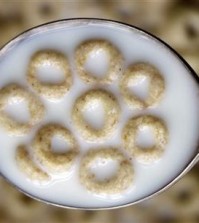- California Assembly OKs highest minimum wage in nation
- S. Korea unveils first graphic cigarette warnings
- US joins with South Korea, Japan in bid to deter North Korea
- LPGA golfer Chun In-gee finally back in action
- S. Korea won’t be top seed in final World Cup qualification round
- US men’s soccer misses 2nd straight Olympics
- US back on track in qualifying with 4-0 win over Guatemala
- High-intensity workout injuries spawn cottage industry
- CDC expands range of Zika mosquitoes into parts of Northeast
- Who knew? ‘The Walking Dead’ is helping families connect
Walk 20 minutes under the sun… for your nose’s sake
Tips for Allergic Rhinitis Patients
By Yoon Ja-young
Research shows that a deficiency in Vitamin D increases allergic rhinitis by up to 80.6 percent. Shunning the sun therefore may be bad for those with allergic rhinitis because exposure to the sun is a way of synthesizing Vitamin D.
Allergic rhinitis is caused by overreaction to antigens such as pollen, dust mites, fungus or animal hair. Patients suffer sneezing fits, runny noses, and nasal obstruction. They also complain of itchy eyes and throats, headaches, or problems in smelling. Though not life-threatening, it deteriorates the quality of life. An increasing number of people have suffered from it since the 1960s due to pollution, with over 300 million patients estimated worldwide. Autumn is an especially difficult season because the symptoms worsen amid the increasing gap in daily temperatures and humidity levels.
A research team led by Prof. Kang Hye-ryun at Seoul National University Hospital analyzed the correlation between Vitamin D level and allergic rhinitis in 8,012 adults. They found that 11.1 percent of them had allergic rhinitis, and they had a lower level of vitamin D compared with those without these symptoms. The lower the Vitamin D there was produced a corresponding higher ratio of allergic rhinitis patients. Those who had less than 15ng/mL Vitamin D had 80.5 percent more incidences of allergic rhinitis compared with the control group, or those with 25ng/mL or more Vitamin D.
Vitamin D is known to play an important role in regulating the immune system. “Vitamin D has been shown to inhibit differentiation, maturation, activation and survival of dendritic cells, leading to impaired T-cell activation,” the researchers note in the paper. Vitamin D also strengthens regulatory T lymphocyte which suppresses allergic reactions. Through such effects on the immune system, Vitamin D has been reported to play an important role in asthma and allergic diseases, including allergic rhinitis. “Recent studies have reported that patients with asthma have lower serum Vitamin D levels than normal individuals, and extremely low levels have been related to severe asthma and more frequent exacerbations. An association between Vitamin D deficiency and atopic dermatitis also has been reported,” the research notes.
People these days, however, are less exposed to the sun. The research team cites studies from the United States, in which the mean vitamin D levels in adults were 30 ng/mL in a 1988 to 1994 survey, falling to 24.2 ng/mL in a 2001 to 2006 survey. “It has been hypothesized as countries become more industrialized, more time is spent indoors, leading to less exposure to sunlight and decreased skin vitamin D production,” the research team explains.
Prof. Kang pointed out that Koreans have low level of vitamin D. “We get most of our Vitamin D through the sun, but staying indoors and too much use of sunscreen may lead to insufficient levels of it. In fact, many Koreans have low vitamin D levels,” she said. “I think exposure to the sun through moderate outdoor activities in autumn will be helpful for people with allergic rhinitis,” she said.
Regarding how much one should be exposed to the sun, the doctor said that it is generally known that around 20 minutes a day between 10 a.m. and 2 p.m. is recommendable, but added that there are some reports contending that five minutes is enough. “However, these guidelines are for Caucasians, so Koreans need a little longer exposure,” the doctor said. “It depends on the season and each region. We don’t have standardized recommendations for autumn in Korea, but generally 20 minutes is okay,” she said.










![일본 사도광산 [서경덕 교수 제공. 재판매 및 DB 금지]](http://www.koreatimesus.com/wp-content/uploads/2024/07/PYH2024072610800050400_P4-copy-120x134.jpg)


